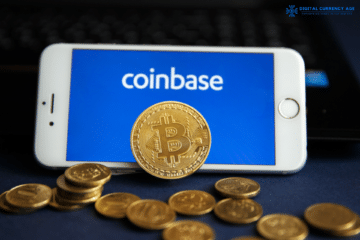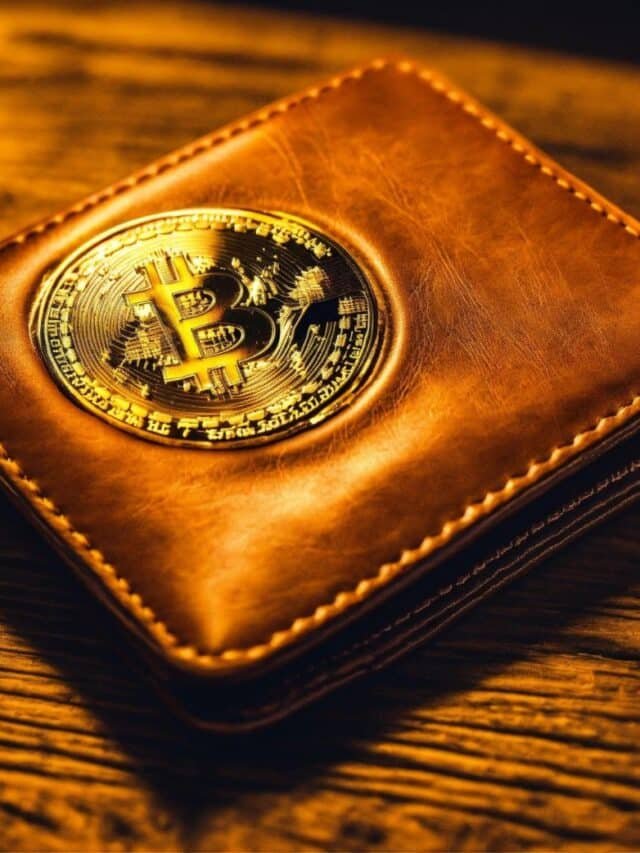Do you want to learn more about cryptocurrencies? Our complete guide will teach you how to start Bitcoin mining on phone so that you can take advantage of its potential.
Welcome to the exciting world of Bitcoin mining, where you can use your phone to unlock the full potential of cryptocurrency. In this digital world, the idea of mining Bitcoin from your phone might sound like something from a science fiction book, but it’s actually possible.
With the fame of cryptocurrencies growing all the time and mobile technology getting easier to get, it’s never been easier to start mining Bitcoin on your phone.
Here is a complete guide that will teach you everything you need to know how to start Bitcoin mining on phone, from the basics to making your setup work as efficiently as possible.
Prepare to use your phone’s power to mine cryptocurrency in a way that has never been done before!
Table of Contents
ToggleWhat is Bitcoin mining?
Bitcoin mining is the process of validating transactions within the Bitcoin network and maintaining the integrity of its public blockchain ledger.
Let’s break it down:
Purpose of Mining:
Transaction Validation: Bitcoin miners verify and validate transactions. When someone sends or receives Bitcoin, miners ensure that the transaction is legitimate and adheres to the network rules.
Blockchain Integrity: Miners are crucial in maintaining the blockchain—a decentralized, tamper-proof ledger that records all Bitcoin transactions.
How It Works:
Imagine you and your friends are guessing numbers between 1 and 100. The goal is to be the first to guess a number less than or equal to a specific target (let’s say 19).
In Bitcoin mining, the target is represented by a hash—a 64-digit hexadecimal number. Miners use their computational power to find a hash that meets specific criteria.
The process involves taking the information in a block (a group of transactions) and running it through the SHA256 hashing algorithm. The resulting hash must match the predefined target.
Finding the correct hash is challenging and time-consuming. Miners compete to be the first to discover it.
Once a miner successfully finds the correct hash, they create a new block, add it to the blockchain, and receive a reward in the form of Bitcoin.
Mining Rewards:
Miners receive both newly minted Bitcoin (as a reward for their work) and transaction fees from the included transactions.
Initially, the reward was higher, but it decreases over time. The total supply of Bitcoin is capped at 21 million, and once that limit is reached, miners will rely solely on transaction fees.
Sophistication and Environmental Impact:
Miners have become sophisticated, using specialized hardware and forming mining pools to increase efficiency.
However, Bitcoin mining has been criticized for its environmental impact. The energy-intensive process and carbon footprint associated with mining have raised concerns.
How to Start Bitcoin Mining on Phone

The idea of mining Bitcoin on a phone is interesting, but it’s important to know what the problems are and whether it’s even possible.
Let’s get into the specifics:
Limitations of Mobile Phone Mining:
Processing Power: Mining currency like Bitcoin requires many high-powered computers. Unfortunately, mobile phones don’t have enough computer power to mine efficiently.
Rules for Google and Apple: Google (Android) and Apple (iOS) both have strict rules against mining on devices. They don’t allow apps that mine cryptocurrency straight on phones. The ban was put in place in 2018 and is still in effect.
Battery Drain and Heat: Mining puts a lot of stress on the processor and other parts, which makes them heat up too much and drain the battery quickly. The goal of app shops is to keep devices from getting too hot and breaking hardware.
Apps for mining on the Play Store:
There may be some mining apps in the Play Store, but they don’t really mine coins on your phone. In its place, they let you oversee mining operations from afar, either in the cloud or on your computer.
MinerGate Control and other apps like it let you keep an eye on mining happening elsewhere and maybe even cash out any crypto that was mined for you.
Get a cloud mining app: Pick a trustworthy app, like MinerGate, that lets you mine in the cloud through its data center.
Make an account: Sign up for an account in the app.
Set up the settings: Tell it you want to mine Bitcoin (BTC).
Check the Hash Rate and Yield: Learn about the hash rate (the amount of computing power) and the possible prizes.
Begin to mine: Start the process of digging.
Remember that mobile mining is not possible because of the issues we already talked about. If you’re really into mining, you might want to use specialized gear (like ASICs) or join mining pools with more resources.

What is a hash?
A hash is a mathematical function that converts an input of arbitrary length into an encrypted output of a fixed length. Let’s explore how hashes work:
Purpose of Hashing:
Hashes are used to secure information, check the integrity of messages, and validate transactions in cryptocurrencies.
Regardless of the original data’s size, a hash will always produce a unique output of the same fixed length.
How Hashes Work:
Input to Output: A hash function takes inputs of variable lengths and returns outputs of a fixed length.
Deterministic: The same input will always produce the same hash output.
Example (Using SHA-256):
The word “Hello” produces a hash: 185f8db32271fe25f561a6fc938b2e264306ec304eda518007d1764826381969.
“Hello world” results in a different hash: 64ec88ca00b268e5ba1a35678a1b5316d212f4f366b2477232534a8aeca37f3c.
Even slight changes (like capitalization) yield distinct hashes.
Security and Efficiency:
Hash functions are commonly used for tasks like checking message integrity.
Cryptographic hash functions, such as SHA-256, add security features.
While SHA-256 can generate a hash in milliseconds, reversing it to find the original input is computationally infeasible, making it ideal for securing cryptocurrencies.
Remember, hashes are like digital fingerprints—unique and irreversible!
How long does it take to mine one bitcoin?
There are many things that go into mining one Bitcoin, and the time it takes can change a lot. Let’s look at the specifics:
Block Discovery Process: The goal of Bitcoin mining is to find new blocks every 10 minutes or so.
At the moment, each properly mined block gives the miner 6.25 BTC.
You should know, though, that the whole Bitcoin mining network is competing in this process, and only one miner will be able to find each block.
Swimming Pools: Most miners join swimming pools to improve their chances of finding a block.
In a pool, miners join their hash power, and everyone gets an equal share of the rewards.
If a miner adds 1% to a pool’s hash rate, for example, they get 1% of the block payouts.
Timeline that makes sense:
By Yourself: For one Bitcoin, it might take you years to mine if you do it all by yourself.
Pool: Joining a pool greatly increases your chances, but it still depends on how much you contribute to the hash rate of the pool.
Average Time: If you use the best mining gear, it could take about 10.12 years on average.
Joining a Mining Pool
Joining a mining pool is a smart move for anyone who wants to start mining Bitcoin on their phone.
Mining pools have many benefits, such as making it more likely to get regular rewards and lowering the risk of losing money when mining alone.
Think about things like pool size and hashrate when picking the right mining pool. Due to their combined computing power, larger pools tend to pay out more often.
On the other hand, smaller pools may offer a more personalized experience and possibly higher benefits for individual miners.
Also, pay attention to how the pool’s fees are set up. There are pools that charge a flat fee or a share of your earnings, so it’s important to think about how these fees fit in with your mining goals.
You can make the most money and have the easiest time mining Bitcoin on your phone by carefully choosing a mining pool that fits your needs and tastes.
How much does it cost to mine one Bitcoin?
Mining one Bitcoin involves several factors, and the cost can vary significantly depending on location, energy prices, and mining efficiency.
Let’s explore the details:
Energy Consumption:
It takes an estimated 1,449 kilowatt-hours (kWh) of energy to mine a single Bitcoin. To put this in perspective, that’s roughly the same amount of energy an average U.S. household consumes in approximately 13 years.
The high energy requirement makes Bitcoin mining a costly venture.
Global Cost Averages:
Across 198 countries, the average cost to mine one Bitcoin was approximately $35,404.03 as of March 23, 2022. This cost exceeds Bitcoin’s value of $20,863.69 on July 15, 20222.
Keep in mind that fluctuating energy prices and the number of miners on the Bitcoin network constantly impact the necessary energy and final cost.
Country-Specific Costs:
Here’s a breakdown of the cost to mine one Bitcoin in select countries (as of March 23, 2022), along with potential profits after accounting for mining costs:
Kuwait: $1,393.95 (Potential profit: $19,469.74)
Algeria: $4,181.86 (Potential profit: $15,574.67)
Sudan: $4,779.27 (Potential profit: $14,977.26)
Yemen: $7,161.77 (Potential profit: $12,594.76)
Ethiopia: $7,168.91 (Potential profit: $12,587.62)
Kyrgyzstan: $7,168.91 (Potential profit: $12,587.62)
Angola: $7,368.04 (Potential profit: $12,388.49)
Qatar: $7,368.04 (Potential profit: $12,388.49)
North Korea: $7,744.32 (Potential profit: $12,012.21)
Kazakhstan: $8,762.00 (Potential profit: $10,994.53)
Venezuela ranks as the most expensive country to mine Bitcoin, with a whopping cost of $246,530.74 per Bitcoin. Energy costs in Venezuela make the process far from profitable.
Best Android Phone For Mining
Picking the right Android phone can make all the difference when you want to start mining Bitcoin on the go.
The Asus ROG Phone 5 is one of the best phones on the market because it performs so well. It has a powerful Snapdragon processor and plenty of RAM to handle the needs of mining operations without any problems.
In the same way, Samsung’s Galaxy S21 Ultra impresses with its cutting-edge technology, such as its high-resolution display and powerful processing power, which make mining go smoothly and quickly.
Another great option is the OnePlus 8T, which is known for its lightning-fast speed and easy-to-use interface, making it perfect for cryptocurrency fans.
The Xiaomi Mi 10 is also a popular choice among miners who want to get the most out of their money because it has a great mix of speed and price.
Finally, the iQOO 3 deserves to be on this list because of its powerful processing power and sleek design, making it a reliable Bitcoin mining tool.
Whether you care more about speed, price, or a mix of the two, these Android phones have the right mix of features to help you start mobile mining with confidence.
Setting Up Your Wallet
Setting up a secure wallet is the most important thing you can do to protect your earnings and make sure transfers go smoothly as you start mobile Bitcoin mining.
Choosing a trustworthy Bitcoin wallet is the most important thing you can do. Choose a wallet company with a good reputation and a history of keeping users safe and happy, like Coinbase, Blockchain, or Trust Wallet.
After picking a wallet, you should protect it so that you can mine on your phone. Put in place two-factor authentication (2FA) to make your account even safer, and think about using a strong, unique password to stop hackers.
You should also look into cold storage as a way to keep your Bitcoins offline and safe from possible cyber risks for a long time.
You can start mobile mining with peace of mind, knowing that your gains are safe, as long as you put security first and take practical steps to protect your wallet.
Monitoring Your Mining
It is important to keep an eye on your mobile Bitcoin mining operations to get the most out of them and make the most money.
Real-time tracking tools will help you keep accurate records of your hashrate and earnings.
MinerGate, Crypto Miner, and BitMinter are just a few of the programs that can help you keep track of your mining activities and make changes to your strategies as needed.
Additionally, these tools let you fix common problems that may come up during the mining process, like hardware or internet issues.
By constantly and proactively keeping an eye on your mining activities, you can keep your performance at its best and easily handle any problems that may come up, making sure that your mobile Bitcoin mining journey goes smoothly and makes you money.
Maximizing Efficiency on Bitcoin Mining
Using good power control techniques is important if you want to get the most out of your mobile Bitcoin mining.
Make sure your phone is fully charged before you start mining, and if you plan to mine for a long time, you might want to use a power-saving mode to save battery life.
Also, make sure that the mining settings on your phone are set up in the best way possible so that you get the best speed and energy use.
Change settings like harshness levels and thread counts to make the game work with your device and not put too much stress on its resources.
You should try out various mining apps and methods to discover the best setup for your phone model.
You can make your mobile Bitcoin mining more efficient and last longer by putting power control first and fine-tuning your mining settings.
Potential Challenges and Solutions
Before you start mobile Bitcoin mining, you should make sure you’re ready for any problems that might come up and have good answers ready.
One problem that mobile miners often have is that their devices get too hot from being used for long periods of time and doing a lot of work.
To fix this, you might want to buy a cooling pad or case for your phone to help get rid of the heat and keep its parts from breaking.
Connectivity problems can also make mining less efficient, whether they’re caused by shaky Wi-Fi or data limits on mobile devices.
To avoid this, use stable Wi-Fi networks as much as possible and make sure your cell data plan gives you enough bandwidth for mining sessions that don’t stop.
By taking care of overheating and connectivity problems before they happen, you can easily handle possible problems and keep your mobile Bitcoin mining running smoothly.
Legal and Ethical Considerations
Before you start mobile Bitcoin mining, you should carefully think about how your actions will affect the law and society.
To start, make sure you follow the local rules about coin mining to stay out of trouble with the law. It’s important to know the rules in your area because different places may have different laws and rules about using mobile devices for mining.
Also, think about how mining on phones affects the earth. Even though mobile mining is easy to use and convenient, it uses energy and adds to electrical waste.
To leave as little of an impact on the world as possible, make sure your mining setup is as efficient as possible and think about how long your device will last.
By putting legal compliance and moral concerns first, you can mine Bitcoin on your phone in a way that is both responsible and sustainable.
Conclusion
As our look into mobile Bitcoin mining comes to a close, it’s clear that the world of cryptocurrency is always changing, giving fans and investors new chances to make money.
Mobile mining might not make as much money as standard methods, but it’s an easy way for people who are interested in the process to start.
That being said, mobile mining is the best way to get involved with cryptocurrency, whether you want to help the network, learn more about blockchain technology, or just try your hand at it.
Why wait then? Jump in today and begin your journey to learn about the interesting world of Bitcoin mining and possibly make money from it.
Disclaimer: This guide has talked about the idea of mining, but it hasn’t directly supported or promoted any specific apps or platforms.
Also, it’s important to know the risks of coin mining, such as the chance of losing money, damaging hardware, and using a lot of energy.
When you mine, you understand that the choices you make are your own and that you are willing to take any risks that come with them.
We are not responsible for any losses or damages that happen because of your mining. When looking into the world of cryptocurrency mining, you should always be careful and make choices based on good information.
But yes, I would love to keep updating with new trends and techniques in the form of tutorial guide.
If you wish to put your valueable thoughts regarding this post, comment below and do share this article with others to show your support.
Also subscribe to our email newsletter to keep receiving the further updates, insights directly in your inbox.
Frequently Asked Questions
How long does it take to mine 1 Bitcoin on a smartphone?
Mining 1 Bitcoin on a smartphone is practically impossible due to the insufficient computational power of mobile devices.
How can I start Bitcoin mining?
To start Bitcoin mining, you'll need to invest in specialized hardware called ASIC miners, choose a mining pool to join, download mining software, and secure a reliable power source. Then, configure your hardware and software, connect to the Bitcoin network, and start mining for rewards.
Is mobile Bitcoin mining profitable?
Mobile Bitcoin mining is generally not profitable due to the limited processing power of mobile devices compared to specialized mining hardware like ASICs. Additionally, the energy consumption and potential hardware wear from mobile mining often outweigh any potential profits.
How much data does Bitcoin mining on a phone use?
Bitcoin mining on a phone typically uses very little data, as most of the computational work is done locally on the device. However, data usage may vary depending on factors such as the mining app's communication with the network and any associated data updates. Overall, the data usage is relatively minimal compared to other activities like streaming or downloading large files.
What are the risks of mobile mining?
The risks of mobile mining include potential damage to the device's hardware due to prolonged usage, increased energy consumption leading to higher electricity bills, and the possibility of downloading malicious mining software or falling victim to scams. Additionally, mobile mining is typically not profitable due to the limited processing power of mobile devices compared to specialized mining hardware.







